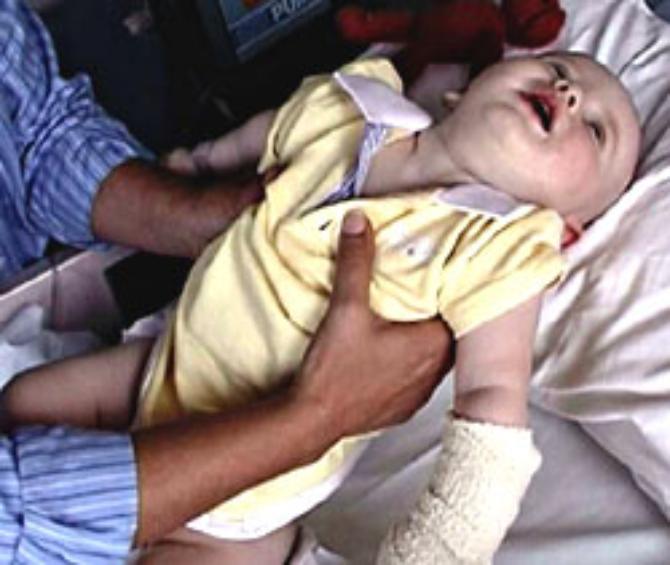Be extra careful when feeding your young infants with anything. Sometimes, our eagerness to give our babies nutritious foods may put their health at risk or even worse, it may cost them their life.
Be warned: Do not give honey to babies younger than one!
Doing so poses the grave risk of botulism in babies.
Be warned: Do not give honey to babies younger than one!
Doing so poses the grave risk of botulism in babies.
Ads
A little baby, just six months old, died after his family fed him honey. They were unaware that babies should not be fed honey.
Botulism in Babies: Baby's Death Highlights Grave Dangers
According to the report published in The Japan Times, a six-month-old boy in Adachi Ward, Tokyo, died of infant botulism after his family fed him honey.
The honey, according to the report, was mixed in juice and they were giving it to the baby twice a day for about a month.
“We were mixing the honey into store-bought juice and feeding it to our baby because we thought it was good for his body,” a member of the family said.
Sadly, the baby had to be rushed to hospital after going into convulsions and suffering respiratory failure.
According to the tests, the honey, which the baby ingested, was contaminated with toxin-producing bacteria known as Clostridium botulinum, a clear case of botulism poisoning.
After a month, the baby died. It was the first death caused by infant botulism in Japan since 1986.
According to the health ministry, Japan’s first recorded case of the disease was confirmed in Chiba Prefecture in 1986 and the ministry issued a warning the following year to prefectures nationwide not to feed honey to babies.
What Is Botulism in Babies?
Infant botulism can occur when newborns, who have immature digestive systems, ingest bacteria that produces toxins inside the bowels.
It is caused by exposure to Clostridium botulinum (C. botulinum) spores. Bacteria from the spores can grow and multiply in a baby's intestines, producing a dangerous toxin.
The condition can occur in infants up to 12 months of age, because young babies have immature digestive systems.
Signs and symptoms of botulism in babies begin after three to 30 days after an infant ingests the spores.
Though infant botulism can be treated, it is important to get medical care as soon as possible. Take your baby to the doctor right away if you spot any of these warning signs.
Constipation is often the first sign of botulism that parents notice. It is typically accompanied by floppy movements, weakness, and difficulty in sucking or feeding.
Other symptoms of botulism in babies can include:
Flat facial expression
Poor feeding (weak sucking)
Weak cry
Decreased movement
Trouble swallowing with excessive drooling
Muscle weakness
Breathing problems
Preventing Botulism in Babies
One important way to reduce the risk of botulism in babies is to not give infants honey or any processed food containing honey before their first birthday.
Honey is a proven source of the bacteria Clostridium botulinum. These bacteria are harmless to older kids and adults because their digestive systems are more mature.
It is best to pressure-cook home-canned foods to reduce the risk of contamination with C. botulinum spores. Boil home-canned foods for 10 minutes before serving them.
Also, Clostridium botulinum spores are everywhere in the environment. They're in dust and dirt, and even in the air. Avoid infant exposure to potentially contaminated soil or dust. Exposure to contaminated soil occurs most often near construction and agricultural sites or other areas where soil is disturbed.

Ads
©2019 THOUGHTSKOTO




